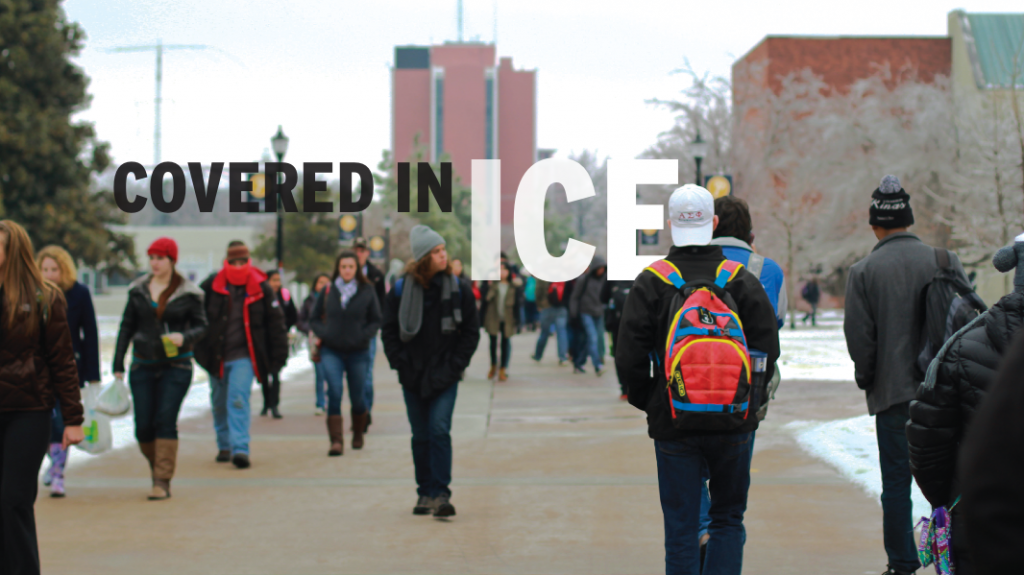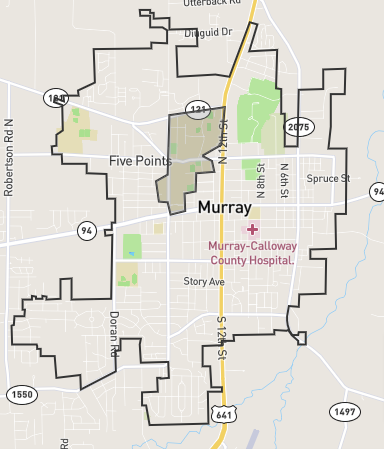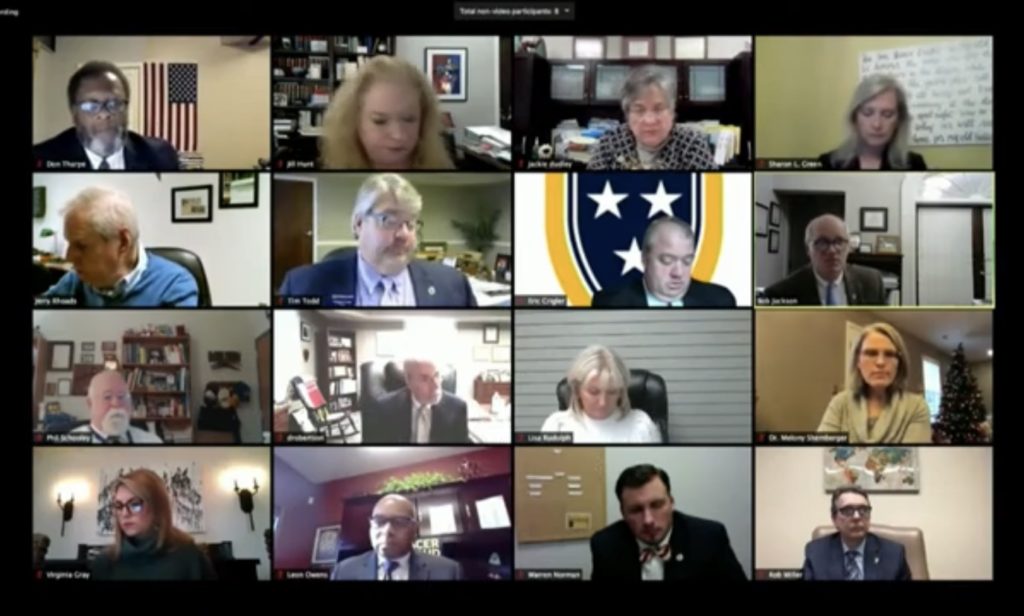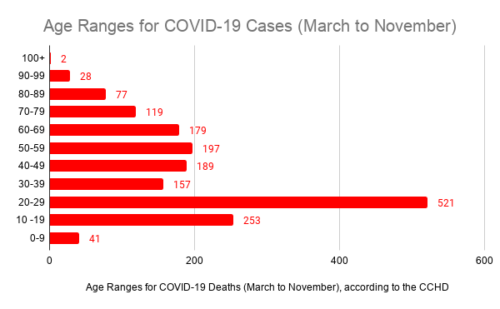
Students walk to class Tuesday with ice still lining sidewalks, streets and driveways.
Winter weather, the hope of class cancelations and confusion over schedules plagued students this week.
Ice and a small amount of snow fell on campus Sunday night and another round of a wintery mix fell Tuesday.
Murray State decided Monday morning to institute a two-hour delay schedule, where all classes after 7:30 a.m. met later in the day. Although the University canceled classes at other campuses Monday and Wednesday, the main campus remained open.
Several students claim that communication was misleading and the schedule on Monday was confusing.
Maddie Pleimann, senior from Waterloo, Ill., said she noticed that Murray State’s informational platforms weren’t all on the same page Monday morning.
“I woke up at 6 a.m. to two text messages: one saying campus was closed and one saying that we were on a delayed schedule,” Pleimann said.
Pleimann checked Twitter and found that Murray State platforms said the campus would be on a delayed schedule – but the website still said campus was closed.
“It wasn’t until after 7 a.m. that I checked again and it said that campus will be on the delayed schedule,” she said. “If I didn’t check Twitter, I would’ve gotten the two text message and checked the website, assumed classes were cancelled, turned off my alarms and missed classes.”
The two-hour class delay schedule was posted on Murray State’s website, giving normal class times and the new times with the delay. Campus didn’t open until 10 a.m. Monday morning.
Interim President Tim Miller said Facilities Management made a recommendation to a committee charged with deciding whether or not campus would close Monday morning. The committee then passed their recommendation to the vice presidents, who sent their recommendation to Miller.
Miller said the inclement weather plan was in its final planning steps until Saturday, Feb. 1 when it was posted on the website.
He said since the policy is so new, it will be revisited and examined for issues and kinks. Student opinions are important to the process, Miller said, and he wants to examine the schedule with them in mind.
“In the meantime, I want to apologize to any students adversely affected by this and I want them to feel sure the faculty will work with them,” Miller said.
The Student Government Association met Wednesday and discussed the inclement weather schedule. SGA?proposed a motion to form an inclement weather schedule review committee, which will include three SGA members and administration.
The committee was charged with reviewing and revising the schedule implemented Monday, and must present it no later than the Feb. 12 SGA meeting.
Jay Morgan, vice president of Academic Affairs, attended the SGA meeting and apologized on behalf of the University for any issues caused by the schedule. Morgan stressed the importance of contacting professors if they think they can’t make it to class in inclement weather.
“We know that our faculty traditionally have good reputations about working with students who are disadvantaged by poor weather – particularly commuters,” Morgan said in an email to faculty Wednesday. “So, as our bad weather persists we would ask that our faculty continue to be a little more flexible than usual in your attendance policies with students. I am sure our students would appreciate it.”
Pleimann wasn’t the only student who faced problems Monday morning because of inclement weather in the region.
Rebekah Dial, senior from Murray, commutes to campus every day. When she left her house Monday, she fell on the way to her car.
“Yes, I know commuters come at their own risk,” Dial said on The News’ Facebook page. “But what about the teachers who say we are required to attend every single class? That if we miss any class meetings points are deducted from our final grade?”
Paula Amols, director of Dining Services and Racer Hospitality, said the Thoroughbred Room had limited services Monday due to a staff shortage and the delay on campus. Both the hot food line and part of the salad line were closed.
“A lot of our staff didn’t make it in today and those that did were later than usual getting in because of the delay and problems getting to campus,” Amols said. “In order to get the hot line open, we have to start cooking early. The delivery truck was three hours late so some of our supplies were low.”
Catherine Sivills, assistant vice president of University Communications, said the text sent to students came from Public Safety and Emergency Management and communications will be looked at as well.
Jessika Cummins, senior from Lexington, Ky., said in theory, the inclement weather plan is ideal.
“But where it stops being viable is when they don’t take into account that we are adults as well as students,” Cummins said on Facebook. “Many other aspects of people’s lives will not go on delay with campus.
“Overall I’m disappointed, but can’t say I’m surprised. Inclement weather is usually a no-win for schools.”
Story by Lexy Gross, Editor-in-Chief & Mary Bradley, Staff writer






























































































